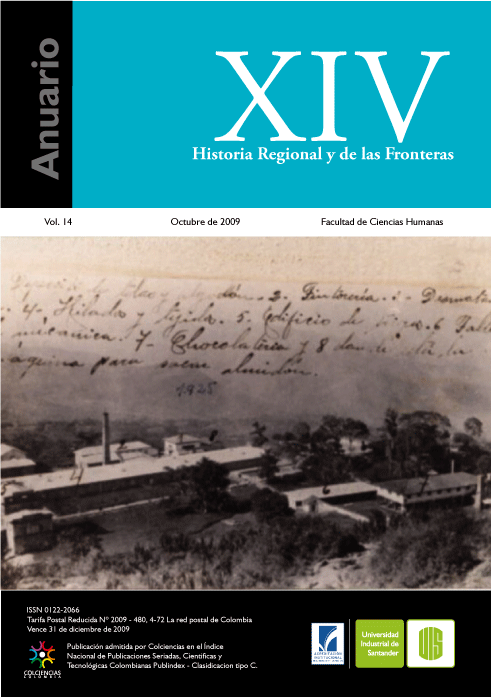Consolidación y declive de una generación política en el siglo XIX: a propósito de la trayectoria de Marco Antonio Estrada Plata
Published 2009-01-19
How to Cite
Abstract
The present article studies the political path of Marco Antonio Estrada Plata as a case study of the group the State of Santander assembled in Pamplona in 1857 with the intention of promulgating the first Political Letter of this federal unit. The Deputies shared typical features such as the sociofamiliar origin, the marriage developed as a mechanism to establish and to consolidate links, the entering to spaces of formal and informal formation where they prepared, in its interior, alliances that allowed them to accede to the spheres of power, the professionalization and a wide political path.
The individual and collective study of the Constituent of the State of Santander allows to affirm that it was a political generation that came to the power in the middle of the 19th century assuming as principal task the modernization of the State. During the attempts for eliminating any colonial vestige of the state structure, the above mentioned political generation tackled the putting in march of two narrowly related projects. On the one hand, the adoption of the federal system stimulated as much for Liberal as for Conservatives. For other one, the adoption of the liberal thought which used as ideological sustenance in the pursuit of the material progress.
Keywords: Political Generation, socialization spaces, Radicalism, Federalism.
